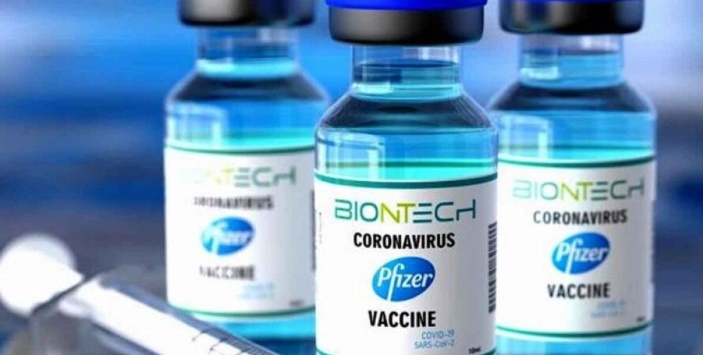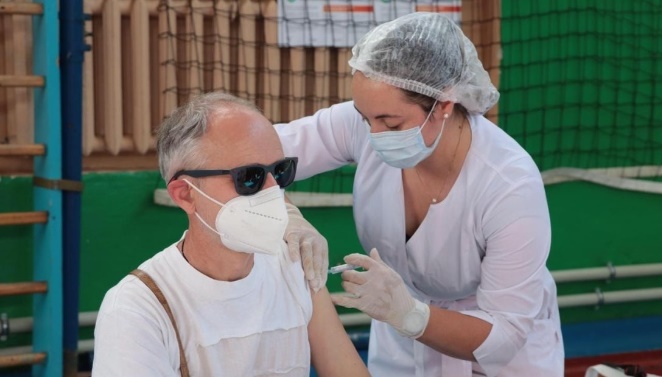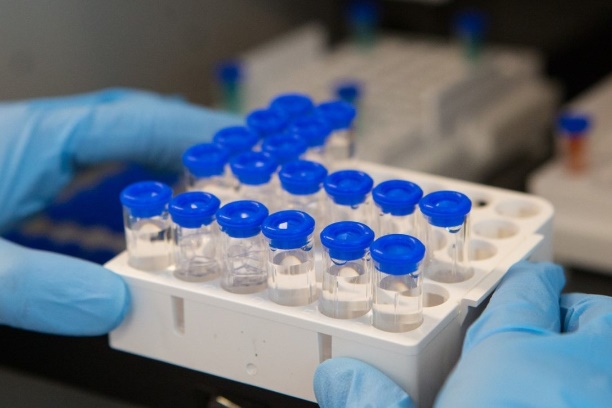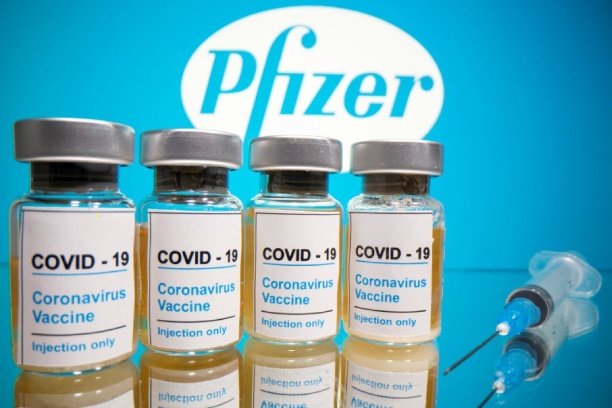Pfizer-BioNTech vaccine efficacy
Research on the effectiveness of the vaccine has not stopped since its development. Pfizer’s vaccine was initially shown to be 95% effective in Phase 3 clinical trials. In April 2021, the company stated that the effectiveness of this coronavirus vaccine is 91.3% , based on estimates of how well the vaccine prevents symptomatic infection from 7 days to 6 months after the second dose.
Pfizer’s vaccine is also found to be 100% effective in preventing severe illness , according to the CDC. Another study found that the vaccine was efficacious to 84% after 6 months , but its efficacy in preventing severe coronavirus disease remained high at 97%.
The CDC’s own study in August found that the mRNA protection of a vaccine against coronavirus may be reduced, but the vaccines will remain as effective against hospitalization.
Also, the Pfizer vaccine is constantly being tested for effectiveness against various mutations of the coronavirus. In early May, it became known that the Pfizer vaccine was 95% effective against severe illness or death from Alpha (UK) and Beta (South Africa).
Later, two studies, published in the British scientific journal Public Health England, showed that the Pfizer vaccine was 88% effective against symptomatic disease and 96% against hospitalization in the case of the Delta strain. Later, Israeli scientists said that the vaccine is 90% effective against severe disease in the case of the Delta strain, but only 39% effective against infection with this strain. The data was compiled from the official statistics of the Israeli health system.
Action of the mRNA vaccine
The Pfizer vaccine does not deliver a weakened or inactivated virus to the body like other vaccines. The mRNA vaccine contains only a tiny fraction of the genetic code of the SARS-CoV-2 virus , essentially instructing human cells to make copies of the spike protein that coronavirus also has.
The spike protein in the coronavirus enables it to invade and infect host cells. But the vaccine allows cells to make antibodies and develop immune memory that recognizes the real virus if it enters the body. By itself, the spike protein is absolutely safe, and in the vaccine it plays the role of a “trainer” for immunity.
Pfizer Vaccine Composition
The Pfizer vaccine contains the active ingredient – mRNA, lipids, salts and sucrose. Researchers at the Massachusetts Institute of Technology decided to explain the composition of the vaccine to those without a degree in organic chemistry.

The Pfizer vaccine contains the active ingredient – mRNA, lipids, salts and sucrose
mRNA
The Pfizer vaccine contains an RNA sequence taken from the virus itself. The vaccine causes cells inside a person to produce the coronavirus spike protein. The virus uses a spike protein to invade human cells. By itself, without the virus, the spike protein is harmless. But human immunity still reacts to it like a foreign body. As a result, vaccinated people gain immunity and are ready to fight the real virus.
Lipids
The Pfizer vaccine, like the Moderna vaccine, uses lipid nanoparticles as a sheath for RNA. Nanoparticles are like tiny balls of fat that protect the mRNA of the virus and help it glide inside cells.
These particles are about 100 nanometers in diameter, which means they are about the same size as the coronavirus itself.
Salts
The Pfizer vaccine contains four types of salts, one of which is regular table salt. Collectively, they are better known as phosphate buffered saline (PBS for short). This ingredient is very common and is designed to maintain the acidity (pH) of the vaccine at the required level, close to the acidity of the human body.
To understand how important this is, you just need to remember the feeling when lemon juice gets into a scratch on your hand. Substances with the wrong acidity can damage cells or break down too quickly in the body.
Sugar
The Pfizer vaccine contains a simple sugar, also called sucrose. Here it works as a protection against low temperatures, protects nanoparticles during freezing and prevents them from sticking together.
How safe is the Pfizer vaccine and who is it for
The Pfizer coronavirus vaccine is recommended worldwide for immunizing people 12 years of age and older. Some countries also have their own restrictions, for example, in the United States, the vaccine is allowed from 16 years old and older, and in the EU, the vaccine is allowed for children from 12 to 15 years old. Pfizer-BioNTech is also expected to be finally approved in the EU for children aged 5-11.

The Pfizer vaccine is recommended for people 12 and older.
In Ukraine, earlier, the Pfizer-BioNTech vaccine, like everyone else from the coronavirus, was approved for people aged 18 and over. Since this autumn, the Ministry of Health has allowed to vaccinate children aged 12-17.
The American CDC also recommends Pfizer-BioNTech as a booster vaccine for people over 65, patients in long-term care facilities, and people aged 18 to 64 with underlying medical conditions if they are at high risk of contracting COVID-19. This latter group may include healthcare professionals, teachers, and others.
Side Effects of Pfizer Vaccinations
Common side effects from the Pfizer vaccine include:
- Chills;
- Headache;
- Fatigue;
- Redness, pain or swelling at the injection site.
It is noted that most symptoms should resolve within a day or two after vaccination . If symptoms persist within 72 hours, or if you have a cough and shortness of breath, it is best to see a doctor.

Side effects of Pfizer vaccine disappear two days after vaccination.
In very rare cases, the vaccine can cause a severe allergic reaction – anaphylaxis, which is removed with an injection of adrenaline. It is for this reason that it is recommended that people not leave the vaccination site within 15 minutes after vaccination, or within 30 minutes if they have a history of severe allergies.
In addition, the US Food and Drug Administration (FDA) warns of a “likely link” between the vaccine and heart disease in young people. Inflammation can occur in the heart muscle (myocarditis) or the outer lining of the heart (pericarditis). This side effect occurs in 12.6 cases per 1 million repeated doses. In most cases, inflammation goes away on its own, without medical intervention.
Who Should Take Pfizer Vaccine
The Pfizer / BioNTech vaccine has a good safety profile, so the list of contraindications to it is rather short.
- Severe allergic reaction (anaphylaxis) to a vaccine ingredient. This refers to a rare allergic reaction to a stabilizer in a vaccine called polyethylene glycol (PEG). It most commonly causes an allergic reaction when taken orally, so it may not cause problems with a vaccine that is injected into the muscle.
- People with a severe allergic reaction to the first dose of vaccine. It usually occurs within the first 15 minutes after vaccination. Thereafter, the administration of the second dose of the vaccine can be postponed. The solution can be revaccination in a specialized immunological clinic.
- People who have had myocardium – inflammation of the heart muscle or pericarditis (inflammation of the outer lining of the heart) after the first dose of this vaccine. Post-vaccination myocarditis or pericarditis is rare.
- People whose first dose of the vaccine caused a severe reaction that was more severe and / or lasted longer than the usual adverse symptoms.
Pfizer-BioNTech Vaccination Scheme

The Pfizer vaccine is given in two doses 21 days apart.
The dosage of Pfizer vaccine is two doses that must be given 21 days apart. The vaccine is fully effective two weeks after the second injection.
The company also claims that a lower dose of the vaccine causes a stronger immune response in children. For example, children 5-11 years old are encouraged to administer two doses of 10 micrograms, and two doses of 30 micrograms for adolescents and adults.
The third dose of Pfizer-BioNTech vaccine is also recommended for people with certain immunodeficiency conditions.
Pfizer Vaccine Storage Conditions
The Pfizer official website lists the conditions under which the coronavirus vaccine must be stored:
- Ultra-low temperature freezers that extend shelf life up to 6 months;
- Pfizer Thermal Shippers (containers) in which the vaccine is shipped. They can be used as temporary storage locations. They must be filled with dry ice every 5 days for a shelf life of up to 30 days;
- Refrigeration units that are usually available in hospitals. They can store the vaccine for 5 days at 2-8 ° C;
- After 30 days of vaccine storage in Pfizer containers, the vials can be moved for 5 days in the refrigerator at 2-8 ° C, which will increase the shelf life to a total of 35 days;
- After thawing and storage at 2-8 ° C, the vials must not be re-frozen or stored frozen.
Which countries have recognized the Pfizer vaccine?
According to the latest data, more than 100 countries of the world have approved the entry of persons vaccinated with the Pfizer / BioNTech vaccine. The full list of countries that have recognized the Pfizer vaccine looks like this:
| Albania | Greenland | Lebanon | Cook Islands | Faroe Islands |
| Algeria | Guadeloupe | Libyan Arab Jamahiriya | Oman | Finland |
| Andorra | Guam | Liechtenstein | Turks and Caicos Islands | France |
| Argentina | Vatican City State | Lithuania | United Arab Emirates | French Guiana |
| Aruba | Hong Kong | Luxembourg | Wallis and Futuna Islands | French Polynesia |
| Australia | Denmark | Macau | Pakistan | Philippines |
| Austria | Dominican Republic | Macedonia | Palau | Croatia |
| Azerbaijan | Egypt | Malaysia | Palestinian Territory | Sri Lanka |
| Bahrain | Iceland | Maldives | Panama | Sweden |
| Bangladesh | Indonesia | Malta | Paraguay | Switzerland |
| Belgium | Iraq | Martinique | Peru | Ecuador |
| Bermuda | Ireland | Mauritania | Poland | Estonia |
| Bosnia and Herzegovina | Israel | Mauritius | Portugal | South Africa |
| Botswana | Italy | Mayotte | Romania | South Korea |
| Brazil | Jordan | Mexico | Rwanda | Japan |
| Brunei | Canada | Moldova | Saint Pierre and Miquelon | |
| Bulgaria | Cayman Islands | Monaco | Saint Vincent and the Grenadines | |
| Hungary | Colombia | Mongolia | Saudi Arabia | |
| UK | Costa Rica | Netherlands | Serbia | |
| Vanuatu | Cyprus | New Caledonia | Singapore | |
| Vietnam | Kosovo | New Zealand | Slovakia | |
| Georgia | Kuwait | Nigeria | Slovenia | |
| Germany | Kyrgyzstan | Niue | USA | |
| Gibraltar | Qatar | Norway | Ukraine | |
| Greece | Latvia | Christmas Island | Uruguay |
Link to source
